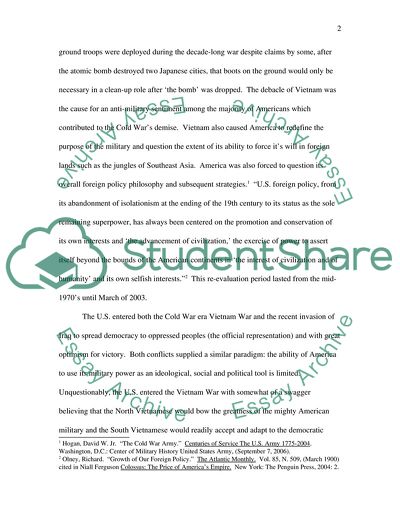Cite this document
(The Defeat in Vietnam Showed the Limits to American Power Essay, n.d.)
The Defeat in Vietnam Showed the Limits to American Power Essay. Retrieved from https://studentshare.org/history/1707752-the-deafeat-in-vietnam-showed-the-limits-to-american-powerdiscuss
The Defeat in Vietnam Showed the Limits to American Power Essay. Retrieved from https://studentshare.org/history/1707752-the-deafeat-in-vietnam-showed-the-limits-to-american-powerdiscuss
(The Defeat in Vietnam Showed the Limits to American Power Essay)
The Defeat in Vietnam Showed the Limits to American Power Essay. https://studentshare.org/history/1707752-the-deafeat-in-vietnam-showed-the-limits-to-american-powerdiscuss.
The Defeat in Vietnam Showed the Limits to American Power Essay. https://studentshare.org/history/1707752-the-deafeat-in-vietnam-showed-the-limits-to-american-powerdiscuss.
“The Defeat in Vietnam Showed the Limits to American Power Essay”. https://studentshare.org/history/1707752-the-deafeat-in-vietnam-showed-the-limits-to-american-powerdiscuss.


